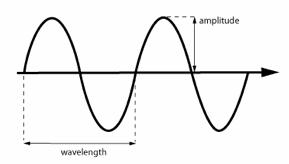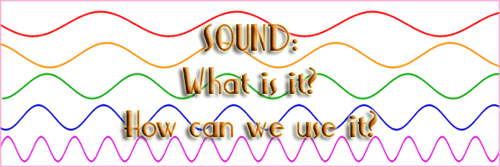- Wikipedia says
Sound is a sequence of waves of pressure that propagates through compressible media such as air or water
in other words-- - Sound is a wave that is generated by an object vibrating in a medium such as air, producing changes in pressure. Sound is often represented graphically by a waveform that shows changes over time on the horizontal axis and changes in pressure on the vertical axis.

Some important terms:
Wavelength
The distance between any point on a wave and the corresponding point on the next wave.
Amplitude
The distance between the highest and lowest point on a waveform. Amplitude determines volume or loudness- the higher the peak of a waveform the louder its volume. Amplitude is measured in decibels (dB).

Frequency
The number of complete cycles of a wave per unit of time. For example, frequency would be used to measure how many times a sound wave completes a cycle in one second. Frequency is measured in hertz (Hz). The range of human hearing is approximately 20 Hz to 20,000 Hz.
Pitch
The higher the frequency, the higher is the pitch of the sound. If the frequency is lower, so is the pitch of the sound. A sound with a frequency of 20,000 Hz would have an extremely high pitch.
